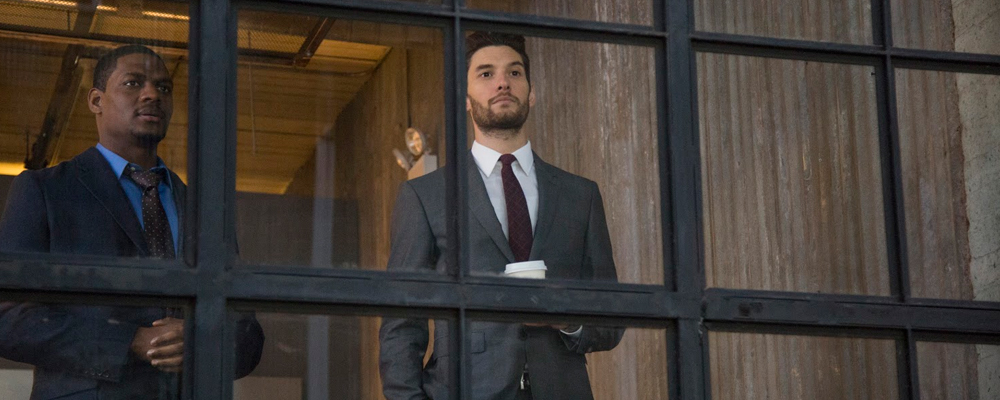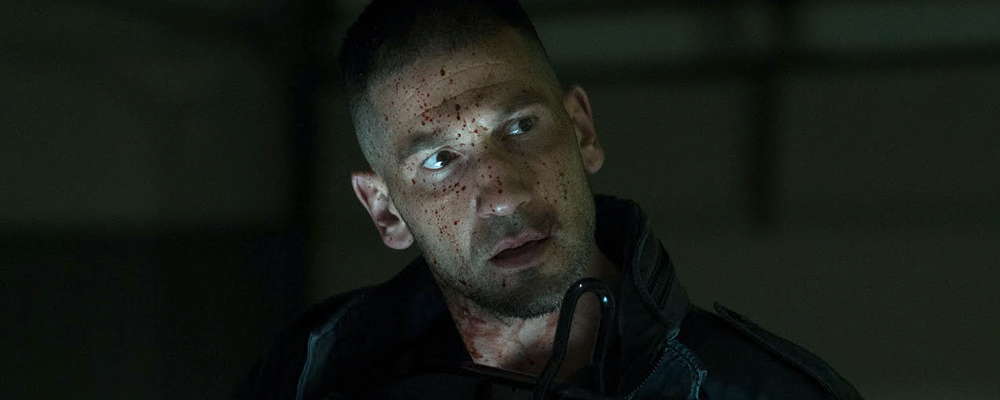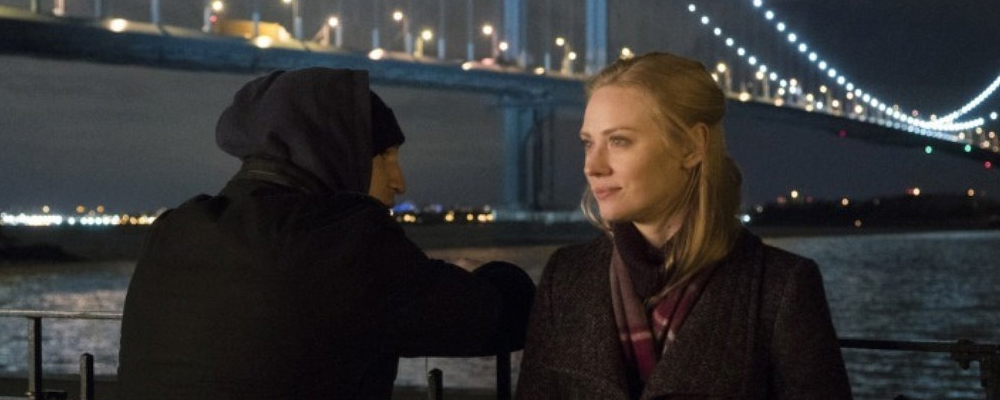Ben Barnes Talks Getting Into a Billy Russo Headspace for Marvel’s ‘The Punisher’
Des Delgadillo
After a steady trickle of poorly received film adaptations, it felt like Marvel’s star gun-toting anti-hero, The Punisher, just wasn’t meant for live action success. The 1989 straight-to-video release featured Dolph Lundgren, some wooden acting and not much else, while the 2004 Thomas Jane-starrer and the 2008 “War Zone” reboot compromised much of the humanity that made The Punisher such a compelling character in the first place. It wasn’t until Jon Bernthal (“The Walking Dead”) tried his hand at bringing the time-honored character to life in the second season of “Daredevil” that comic book fans felt a tinge of hope.
With Bernthal’s take on The Punisher comes a new life for the controversial ex-Marine turned vengeful vigilante. He might have all the precision and bravado of the last two film adaptations, but Bernthal manages to play Frank Castle with just the right measure of humanity, giving viewers a reason to get invested in what could have very easily become just another antiquated anti-hero archetype. It’s that very humanity that takes center-stage in Netflix’s standalone series, “The Punisher,” an exceedingly violent installment in a suite of MCU offerings that makes up for every dull moment with a constant barrage of bullets and splattering brains. Most importantly, though, “The Punisher” ultimately tells the story of veterans and their harrowing quest for re-integration.
Entertainment Voice caught up with Ben Barnes, who stars opposite Bernthal as Billy Russo, a veteran in his own right with a lot of anger issues and even more skeletons in the closet. Barnes talked to us about the preparations necessary for the Netflix show’s demanding physicality, its exceedingly violent overtones, and getting to work on a comic book adaptation that’s grounded, dark and daring.
So, how did you land the role?
I had actually met some of the Marvel guys on some other projects over the past few years and never kind of necessarily clicked on what the right kind of role in that universe was for me. They’ve got memories of elephants at Marvel and they remember everybody. They actually thought of me when this role came about. I auditioned with the show runner and a couple of other guys at Marvel with speeches they wrote especially for the audition because they’re not quite sure what character you’re auditioning for. You can’t do any research. They wrote this speech that was very cool for the audition and I was very disappointed when that speech wasn’t in the actual series. But I managed to sneak two lines into one of the episodes.
Because of the genre, “The Punisher” is a very physical show with big set pieces and action sequences. Can you give us some insights into how you prepare physically for that kind of performance?
Yeah I was kind of scared into the physical prep by Jon Bernthal, mainly. You know when you shoot 12 to 13 hour days, he would say “yo Benny, come and work out?” And I have to go and do these horrendous workouts which Jon would be doing with his double.
Because they got to keep me and Jon apart for a lot of the show, I would have to take off while Jon was filming and I wasn’t, so I would go to this warehouse in Brooklyn where they painted that skull on the wall. So even if I didn’t know what I was going to be doing on the show, I would try to learn how it feels to be confident with the weapon in my hand. I would watch a bunch of Special Forces documentaries and training videos and things like that to kind of feel infused with that even though it’s clear it’s something I would never be able to do.
There’s the aesthetic part too — the way you look. You don’t want to seem out of place in that universe. There’s a gym training aspect to it. I actually have a very old friend, Charlie Cox, who was on “Daredevil.” He and I would work out together most days when he was there as well. You want to have that demeanor and physical stature on the film set.
You’ve been in some other visually enticing shows like “Westworld” and “Sons of Liberty.” How did this experience differ from those other big budget productions?
Well this is certainly much more physically intense and demanding. I think that’s something about being in a show that’s made by Marvel where they kind of have an idea in mind of how people in this universe should look and that’s certainly motivating in gyming (sic) and dieting and everything. Not that I can manage to scale those heights that some of these guys achieve with their bodies, but I’m also approaching it from a slightly different angle with this type of character. But you know, it’s wonderful to pick up these different skill sets — shooting muskets, and obviously there’s horse riding and there’s running on rooftops, different types of skill sets including sword fighting and training.
It’s an interesting show because of how the main character operates when compared to the traditional superhero, and your character as well. In a way, the show is very relevant to social and political debates going on right now in the country. What do you hope viewers take away from the show, especially in the times we live in?
I think some people look to see if the show is trying to say something specific, and I don’t think that’s necessarily what we’re trying to do with the show. I think we live in a world that’s dark and violent sometimes and obviously the show is not going to be for everybody, and there are going to be some people who might think this is not the time for something like this, but there are also people who want to go down that rabbit hole and investigate how this world sort of mirrors our own and I think there are enough characters within the show that have enough of an ideology, and it comes from their history and the build of that. There is debate within the dialogue and characters about gun ownership and different approaches and suffering. You have a real anti-hero who is the heart of the series who has a really complicated and traumatic part. Most of the other characters are damaged, struggling in their way. Everyone struggles in some way. In today’s world we struggle a lot, but in some ways human beings will always struggle. It’s interesting to make shows about characters and how they deal with that in their different ways — some will help others, some will try their best to put up that façade of marching up and pretending everything is ok, or trying to re-create a nostalgic past that you’re trying to cling onto like any one of these characters. It shows different human approaches to suffering and I think that’s an interesting thing to make a show about. I think that those who choose to engage with it are going to get more out of it than just explosions and punching.
Are there any role models or inspirations you look to when preparing for a role?
I’m this huge kind of film geek, and so every time I’m watching films, I try to sponge up why it is I loved this performance, and I think when I’m kind of presented with the challenge of a character like this one I have a history of years and years of watching films and a sort of backlog of standing on the shoulders of people who’ve created amazing characters before, and they have — like making a potion — taken a dab of this and that. I won’t give a specific example for this but I remember when I did “By The Gun,” this mob movie, sort of this Italian mob film set in Boston. It was a couple of years ago. I thought it was a very interesting character because he didn’t feel like he belonged in this lifestyle. He kind of just found his way into it and he wasn’t comfortable with it in his authentic self. I struggled with some of the moments of anger and rage. That was one of the things where I didn’t feel more powerful when I shouted. I just remember watching a load of films with Al Pacino and he has this very guttural way of shouting, a kind of raw way like an animal would shout. And I remember thinking, “well maybe that’s something I could try,” so it’s not about copying anyone or anything. It’s about creating something instead of just mimicking. I like to create characters by sponging than by being in my environment.
One of the most peaceful things with this character was learning to just walk the docks in the middle of the night, walking around and feeling secure, feeling a sense of ownership of a place. That’s more useful than going to a book or a show for exploration.
Without spoiling the show, is there one moment that’s near and dear to your heart? Like one scene or moment that sticks out in your memory?
I think it was episode 8, which focuses a little more on sort of the history and what it is he’s been kind of keeping inside of himself. Obviously this character almost lies with almost every other sentence that he speaks, and it’s kind of difficult to decide what’s true and what isn’t. But there was a scene, I think it’s the only scene where he doesn’t tell a cynical lie. It’s a scene where you see him with his mother and it was something that felt very raw and was sort of more powerful than I expected it to be. When we started shooting I didn’t know necessarily what was a lie, but I knew this scene was absolutely true for him, and that scene resounded a lot with me. And then in the finale episode where I got to work with Jon a little bit more, and we finally tell each other how we feel about each other was also very rewarding, but I would say the scene with my mother was the best.
“The Punisher” premieres Nov. 17 on Netflix.



